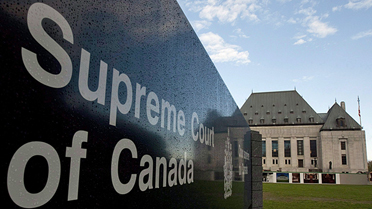Why Christians Need to Address Fifty Shades

The last time I was scheduled to preach I did something which might be considered a little unusual. No, I didn’t wear mismatched socks, nor did I don a bow tie. Both might be considered a little out of the ordinary for my character, but not necessarily the variety of unusual I am talking about. The surprising event I am referring to is the fact I took ten minutes away from my allotted time to preach, and used that time to talk about a book. What makes this even more unusual is the aforementioned book had absolutely nothing to do with God, the Gospel, or the Bible.
You’re probably wondering what secular book would warrant stealing some precious preaching time in order to discuss. Unless you live in the back woods, where television and internet connectivity are nonexistent, you probably have a pretty good idea what book I am talking about. The E. L. James Fifty Shades trilogy has become a cultural phenomenon of monstrous proportions. The trilogy has occupied the top three spots on the New York Times bestseller list for months, and has become the fastest-selling series of all time. We are talking some big numbers here folks. To put things into perspective, it is bigger than J. K. Rowling’s Harry Potter series. However, unlike the Harry Potter series, Fifty Shades was definitely not written for children or tweens. It has been marketed as “erotic fiction”, and is famous (or infamous) for its graphic depiction of BDSM (bondage – domination – sadism – masochism). In other words – it’s porn.
Deciding to take time out of our Sunday service to talk about a book, which is essentially porn, was an easy decision to make. Please do not mistake my last comment to mean we didn’t first count the cost of our decision. We most assuredly did. Human nature and curiosity being what they are you always run the risk of opening a door of temptation for those who want to “confirm” what you are saying is true. However, we felt the benefit of helping spare just one person the hurt caused by porn, far outweighed the potential risk.
Another reason for addressing the Fifty Shades series from the pulpit, is that this issue will likely not be going away anytime soon. Oh, I am sure in the not too distant future E. L. James’ books will be but a footnote, if that, in our literary history. However, mark my words, her books are just the beginning of what is to come. In the same way Harry Potter and Twilight Saga marked the insurgence of supernatural and vampire themed books marketed to tweens, so too will the Fifty Shades series mark the influx of “acceptable” and “Chic” porn marketed to women. One cashier at a national book chain I frequent, confided in me that they could not stock the shelves fast enough. Don’t tell me the publishers are not sitting up and taking notice.
If you are observant, you may have already noticed that there has been a definite trajectory in our culture to the issue of porn. Books that could only be found in sketchy “specialty stores” slowly began to find their way onto nondescript shelves in secluded dark corners of mainstream bookstores. Now, these same books are being promoted and prominently displayed by the cash registers for quick and easy purchase. Material once though shameful to possess is now being openly celebrated and endorsed by neighbors, friends, and family. Porn has since lost its stigma and has become acceptable, trendy, and chic. You had better believe this way of thinking will invade our local assemblies. I would argue it already has. The most telling statement I have heard to date was spoken by a friend who said, “I didn’t know that it was porn when I bought it. I just can’t seem to put it down.” Hook, line and sinker.
So when it came to that fateful Sunday, although I did address the book series in question, my goal was to target the mistaken idea of porn’s acceptability. No one would argue that the Bible doesn’t clearly show that sexual immorality, in all its varied forms, is sin. What people tend to forget is that the Bible also shows that sexual sin isn’t simply the physical act, but includes the actions, thoughts, and intents leading up to the actual sin (Matt 5:27-28). Jesus singlehandedly destroyed the dividing line between thoughts and actions. In other words making plans for, entertaining the thoughts of, or simply fantasizing about sexuality in a sinful way is a sin.
This touches the heart of what pornography is and does. It is a fantasy world populated with images that depict sexuality in deviant, perverted, and sinful ways. Individuals who indulge in pornography may not be “physically” participating in the sexual act being depicted, but they are just as much participants mentally, which is a sin (Matt 5:27-28). The really sad thing is these pornographic images continue to exist in the memory of those who are sinning, to be relived long after the “show” is over and the last sentence has been read. As Believers, the thing we can never forget is the Word tells us to be selective in what we allow into our lives (what we see, hear, and think) to ensure that they are pure and holy and ultimately pleasing to God (Psalm 101:3, Luke 11:34-36, Phil 4:8).
In closing I would like to embolden everyone, especially you leaders, to have the courage to address this issue head on. It was both encouraging and surprising how many people thanked us afterward for being bold enough to give a word of correction and to tell them the truth. Let me assure you it is better to address the issue and take the heat now instead of staying silent and waiting for the inevitable masses yet to come who will suffer in silence as they try to escape the iron grip of porn.
Note: I have taken the liberty of adding a few links that may help arm you in your discussions.
Girls Gone Wise, Dr. Drew Interview, Jenny Armstron’s blog, MSMBC,
Please be warned they are not all Christian sites and I wouldn’t want to vouch for everything on their sites or all of their opinions. Use these links for informative purposes only.
 Well Canada has done it again, or to be exact, the Supreme Court of Canada has done it. I usually do not post twice in one day, but for this I am making an exception. The Supreme Court has recently upheld a ruling, which has both free expression and freedom of religion implications. The ruling in question can be found
Well Canada has done it again, or to be exact, the Supreme Court of Canada has done it. I usually do not post twice in one day, but for this I am making an exception. The Supreme Court has recently upheld a ruling, which has both free expression and freedom of religion implications. The ruling in question can be found 
